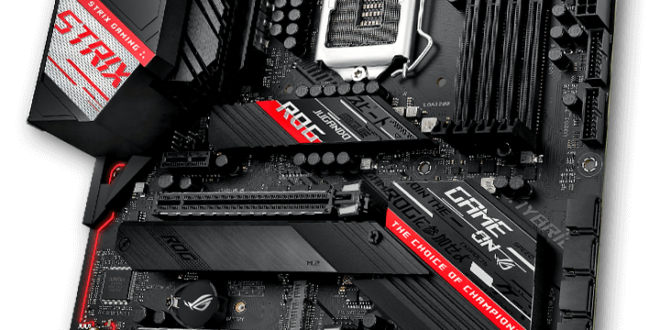When building or upgrading a PC, choosing the right motherboard is crucial. Among the many options available, Asus motherboards stand out for their performance, reliability, and innovative features. Whether you’re a gamer, a professional, or a casual user, Asus offers a range of motherboards that cater to different needs and preferences. In this guide, we’ll explore the key features of Asus motherboards, review some top models, and provide tips for selecting the best one for your setup.
Why Choose an Asus Motherboard?
Asus is a well-respected name in the world of PC hardware, known for its high-quality motherboards. Here’s why Asus motherboards are a popular choice:
1. Advanced Technology and Features
Asus motherboards are packed with cutting-edge technology designed to enhance your PC experience.
- High Performance: Many Asus motherboards support the latest CPUs, high-speed RAM, and advanced graphics cards, ensuring top-notch performance.
- Innovative Cooling Solutions: Features like advanced cooling designs and multiple fan headers help keep your system running smoothly.
2. Reliability and Durability
Asus is known for its commitment to quality and durability, ensuring that your motherboard can handle demanding tasks and long-term use.
- Quality Components: Asus motherboards are built with high-quality components to provide stable and reliable performance.
- Robust Build: Designed to withstand the rigors of heavy use, Asus motherboards are known for their longevity.
3. User-Friendly Features
Asus motherboards come with a range of user-friendly features that make setup and customization easier.
- Easy Installation: Features like intuitive BIOS interfaces and clear installation guides simplify the building process.
- Comprehensive Connectivity: Multiple ports and slots for various components make it easy to connect and upgrade your hardware.
Top Asus Motherboard Models
1. Asus ROG Crosshair VIII Hero
The Asus ROG Crosshair VIII Hero is a high-end motherboard designed for gamers and enthusiasts who demand the best performance.
- Chipset: AMD X570
- Key Features: Supports AMD Ryzen 3000 series processors, PCIe 4.0, advanced cooling solutions, customizable RGB lighting.
- Ideal For: Gamers and PC builders looking for top-tier performance and features.
2. Asus TUF Gaming Z690-Plus WiFi D4
The Asus TUF Gaming Z690-Plus WiFi D4 is built for gamers who need a reliable and affordable motherboard.
- Chipset: Intel Z690
- Key Features: Supports Intel 12th Gen processors, DDR4 memory, integrated WiFi 6, rugged build quality.
- Ideal For: Gamers and budget-conscious builders seeking a balance of performance and durability.
3. Asus Prime B550-PLUS
The Asus Prime B550-PLUS offers a great mix of features for mainstream users and budget builders.
- Chipset: AMD B550
- Key Features: Supports AMD Ryzen processors, PCIe 4.0, enhanced power solution, ample connectivity options.
- Ideal For: Users looking for a cost-effective motherboard with essential features and solid performance.
How to Choose the Right Asus Motherboard
1. Determine Your Needs
Consider what you need from your motherboard based on your usage and goals.
- Gaming: Look for high-performance models with support for the latest CPUs, GPUs, and fast RAM.
- Productivity: Choose a motherboard with ample connectivity options and support for high-speed storage.
- Budget: Balance your requirements with your budget to find the best value for your money.
2. Check Compatibility
Ensure that the motherboard you choose is compatible with your other components.
- CPU Compatibility: Verify that the motherboard supports your CPU’s socket type and chipset.
- RAM Compatibility: Check the maximum supported RAM and memory type to ensure compatibility.
- Expansion Slots: Make sure there are enough PCIe slots and other connectors for your needs.
3. Consider Future Upgrades
Choose a motherboard that allows for future upgrades and expansion.
- Future-Proofing: Look for features like PCIe 4.0 and support for the latest RAM to ensure your motherboard remains relevant as technology evolves.
- Expansion Options: Ensure there are additional slots and connectors for future upgrades.
Tips for Maintaining Your Asus Motherboard
1. Keep BIOS Updated
Regularly update your motherboard’s BIOS to ensure compatibility with new hardware and improve system stability.
- Check for Updates: Visit the Asus website for the latest BIOS updates and follow the instructions for installation.
2. Manage Cooling
Proper cooling is essential for maintaining the performance and longevity of your motherboard.
- Clean Fans and Heatsinks: Regularly clean dust from fans and heatsinks to ensure optimal airflow.
- Monitor Temperatures: Use software to monitor system temperatures and ensure they remain within safe limits.
3. Avoid Overloading
Avoid overloading your motherboard with too many peripherals or high-demand components.
- Power Supply: Ensure your power supply is adequate for your system’s needs to prevent potential damage.
- Balanced Configuration: Distribute components evenly across available slots and connectors to avoid overloading.
Frequently Asked Questions (FAQs)
1. What is the difference between Asus ROG and TUF series motherboards?
The Asus ROG (Republic of Gamers) series is designed for high-end gaming and overclocking, offering advanced features and premium performance. The TUF (The Ultimate Force) series focuses on durability and reliability, providing a good balance of performance and affordability.
2. How do I know if an Asus motherboard is compatible with my CPU?
Check the motherboard’s specifications for the supported CPU socket type and chipset. Ensure your CPU matches these requirements. You can also refer to Asus’s compatibility lists on their website.
3. Can I use an Asus motherboard with an AMD processor?
Yes, Asus offers motherboards compatible with both AMD and Intel processors. Ensure you select a motherboard with the appropriate chipset and socket type for your AMD processor.
4. What are some essential features to look for in a gaming motherboard?
Key features to consider include high-performance chipsets, support for fast RAM and GPUs, multiple PCIe slots, advanced cooling solutions, and customizable RGB lighting.
5. How often should I update my motherboard’s BIOS?
Update your motherboard’s BIOS as needed, especially when installing new hardware or encountering compatibility issues. Check for updates periodically on the Asus website.
Read more Kimbrady Carriker: A Deep Dive into the Life and Legacy of a Visionary Leader
Conclusion
Asus motherboards are a top choice for PC builders and enthusiasts due to their advanced features, reliability, and user-friendly design. By understanding the key features, top models, and tips for choosing and maintaining your motherboard, you can make an informed decision that enhances your PC experience. Whether you’re building a high-performance gaming rig or a reliable workhorse, Asus offers a range of options to meet your needs and exceed your expectations.

